“We hear gunshots quite often in our neighbourhood,” says Tony Thornton, almost casually. “If we freaked out every time we heard them, we’d never get anything done.”
The 61-year-old, long-time Englewood, Chicago resident states this as a matter of fact. A reality now made clear to game developer Michael Block, about Chicago’s South Side. If the young dev wanted to make a videogame faithful to the city in question, it’s something he would need to be clearly cognizant of.
Before hearing from Thornton and others like him, Block was never exposed to this street-level custom. Like many privileged to live in an environment where violence is atypical, the sound of gunfire was an alien concept in contrast. The young indie developer had expressed a passion and interest in a reality he was now injecting himself into, but he lacked the stripes and authenticity to go with it – the kind that came from hearing and seeing a gunshot as opposed to reading about it in the news.
“When I first got to college I probably would have said that everyone across the country generally had similar life experiences. Now … I have plenty of exposure to proof that it’s not the case,” – Michael Block
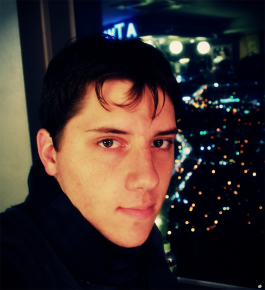
North Side
Both Thornton and Block deviate from each other in every sense of the word because of this. So much so that one appears a polarized other-half to the other. In speech, Block’s words are delivered with a youthful and studied political correctness; Thornton’s is the rhythmic accent of a Chicagoan, expressed with bold and informed wisdom. Speaking with each, one could also chalk their differences to a divide of generations, but the geography that separated the two plays an obvious role.
Sheboygan, Wisconsin, a city that contains a paltry 1.8 per cent of an African American presence, is the place Block spent much of his childhood. He always had a love for videogames, like many kids, and becoming a programmer seemed like the most natural first step towards the coveted title of game developer. When the time came for post-secondary education, his choice interestingly enough favoured the urban, 32 per cent African American mesh of Chicago.
“When I first got to college I probably would have said that everyone across the country generally had similar life experiences,” recalls Block. “Now that I have plenty of exposure to proof that it’s not the case, I can speak more to those issues when speaking with friends or family.”
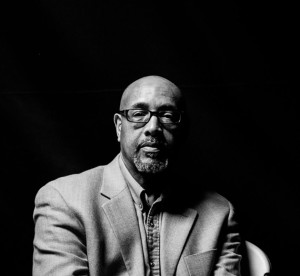
South Side
Thornton, in comparison, is a model witness to said issues. The practising writer grew up on Englewood’s streets and traversed its sidewalks and doorsteps since 1965. It was an era when strangers could reprimand you with a backhand if necessary, and fathers and godfathers could walk around strapped without violent intent, like Thornton’s own often did. Over time, he observed firsthand the gradual change that took place, swayed by lopsided political decisions, civil unrest and a shifting culture, whose emphasis, according to him, focused on “me” instead of “we”.
“It was actually a different time, especially in Englewood, and dare I say, most Black neighbourhoods across the USA,” says Thornton. “We were poor, but we didn’t know it. Our lives were rich and there was a sense of community and extended family.”
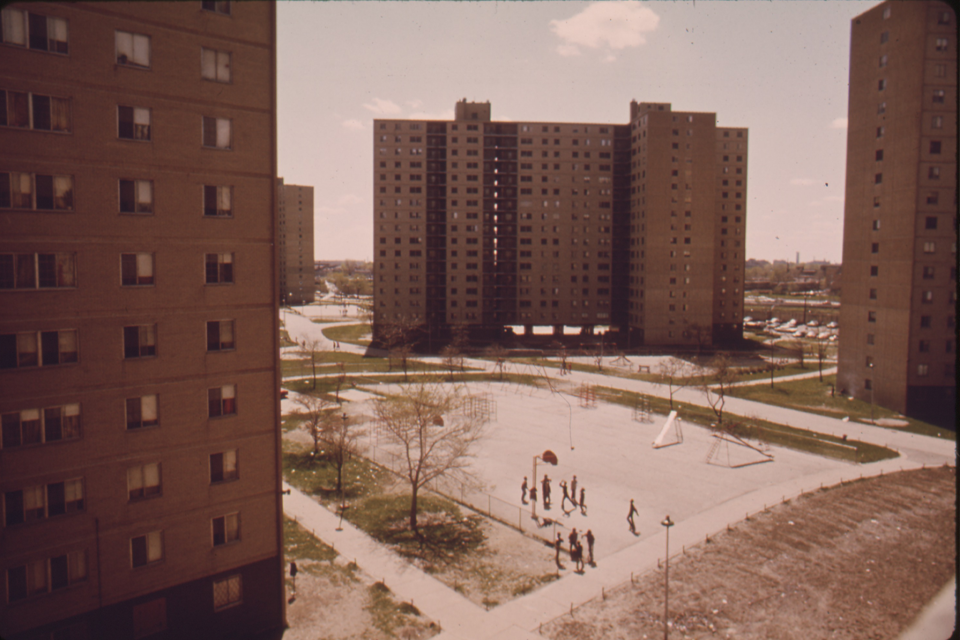
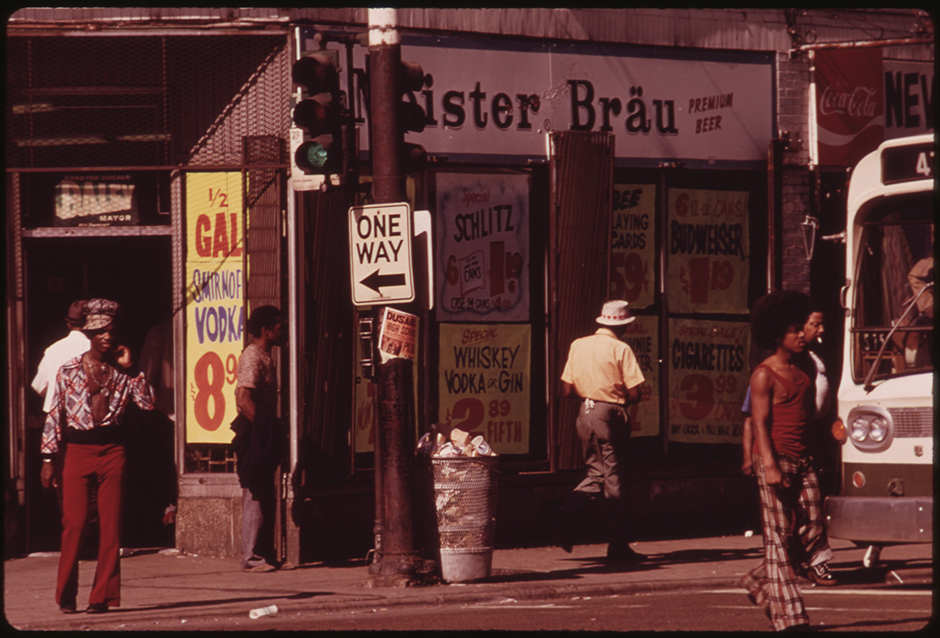
“We were poor, but we didn’t know it. Our lives were rich and there was a sense of community and extended family.” – Tony Thornton
Time over the years since its earliest periods served to devolve Englewood into one of the more poverty stricken areas in the city. The reasons came in many forms: the after-effects of The Great Depression, economic segregation, redlining, white flight and an ever-increasing gang presence.
Fast forward to the current decade and City of Chicago census data shows that 46.6 per cent of Englewood households live below the poverty line as of 2012. Equal parts sensationalized and factual, South Side Chicago’s woes have consequently become an unwanted name tag placed on a city hounded by the media’s curiosity rather than genuine concern.
“When someone does the right thing, it doesn’t make the news anymore,” says Thornton. “There are so many stories that never get told; so many beautiful people. Nobility, I see it all the time, sometimes just in the way someone is walking. You have brothers and sisters now who address each other with ‘peace and blessings queen,’ or as ‘king, or God.’ ‘Come on God,’ which is an extension of the Rastafarian, I and I, and we’re all Gods.”
The Plan
Once he graduated from Chicago’s DePaul University with a bachelor’s degree in computer science, Block found himself working as a software engineer at a mid-sized independent gaming studio called Phosphor Games. He later transitioned as the co-founder of the indie development team, The Men Who Wear Many Hats. Over a period of five years, he was living his dream and achieved a sizable amount of traditional success. In spite of conventional factors that would define achievement for any developer, it did little in satisfying an unfed purpose growing within Block.
“I feel like games provide a different way in changing things, compared to how movies or books do.” – Michael Block
“There was this evolution that I went through as I was working in games, where I was really excited to work on these entertainment-only titles that didn’t necessarily have a social message behind them,” says Block. “As time went on, I felt that, well there’s a lot of things I’m seeing in the world that I don’t particularly like and that I’d love to see changed, and I feel like games provide a different way in changing things, compared to how movies or books do.”
Thornton himself knew very little about the gaming world four years ago. At the time, he was a youth mentor and retired postal worker, taking classes at Kennedy King College. It was during this period when one of his professors approached him and suggested that he meet with a young man named Michael Block, about a project that was in need of a writer; the project was called We Are Chicago.
“When I met him, I said okay, young, white guy, doing a game about Englewood…,” says Thornton, before a pause. “So when he was interviewing me, I was interviewing him likewise, because getting paid is great, but I don’t want to get paid and then turn out a product that’s going to betray the trust of my neighbourhood that I grew up in and I live in to this day.”
“I don’t want to get paid and then turn out a product that’s going to betray the trust of my neighbourhood that I grew up in and I live in to this day.” – Tony Thornton
Thornton’s concerns weren’t misplaced. The recent Spike Lee joint, Chiraq, demonstrated what could happen when someone attempts to tackle issues they haven’t directly lived through. Before We Are Chicago was given its name, its architect had already invested a personal interest in the conditions of the South Side. Block started attending events in Englewood and heard stories from residents that shed a light on conditions, once contorted to him living in the north.
“The more I heard those stories and talked to people, the more curious I got, the more investigating I did, the more I discovered, the more disconcerting it was to the point where I felt, this is pretty messed up,” says Block. “As you discover more, there’s more things that you become curious about and more things you want to find out more about and a lot of it was really negative. I knew that not knowing about it was helping to contribute to that and not understanding it very well was helping to contribute to its continuation.”
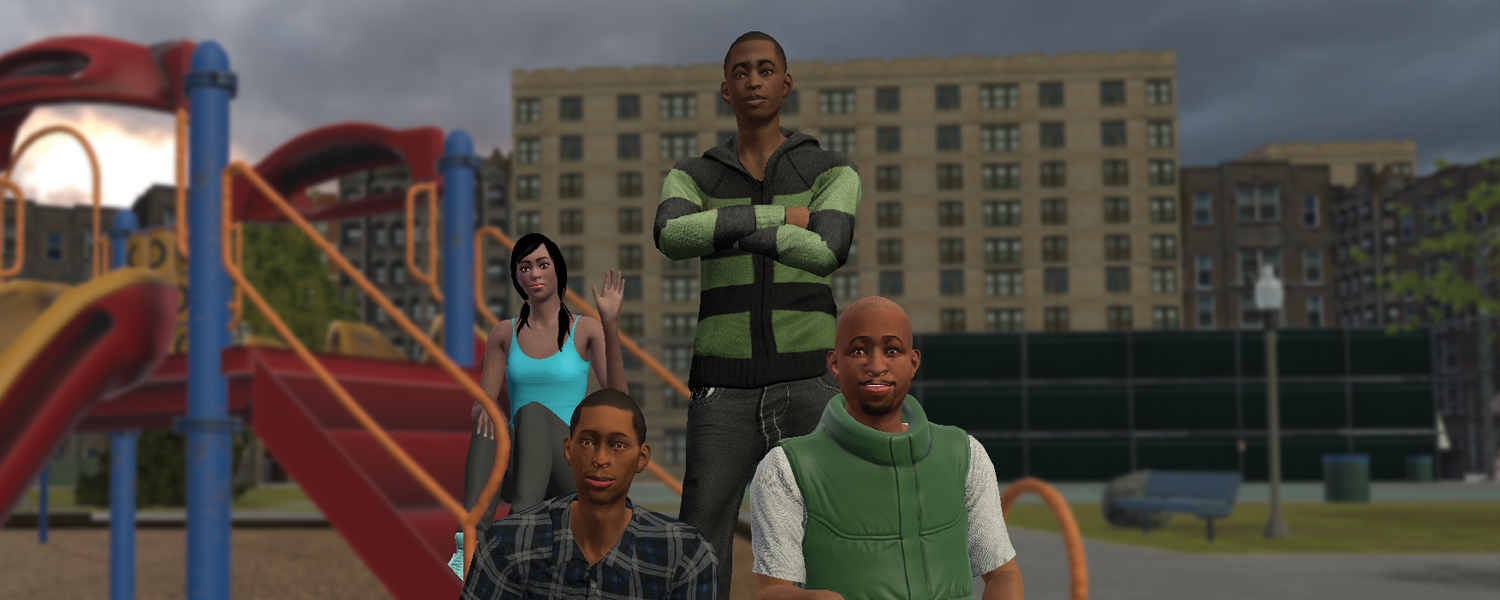
Authenticity is Chicago
We Are Chicago was very much an attempt for Block to educate others with what he learned himself. After using a portion of the funds he had earned from his past ventures, he went on to create an independent team of like-minded developers to form Cultural Shock Games. Telling true stories to inform through the gaming medium became the group’s mantra, and authenticity was paramount to doing that effectively.
“I wanted to speak to the reality of how we speak and, of course, the situations in which we live. Basically I was given a template, okay this is the situation, now write,” explains Thornton, who was hired as the gatekeeper of that authenticity. “When the situations weren’t true to life, I would have them go back to the drawing board and come up with something different, because that’s not a real situation. And so once we had arrived at places where I felt were authentic, then I would speak to that and speak to that in a way that my people were speaking.”
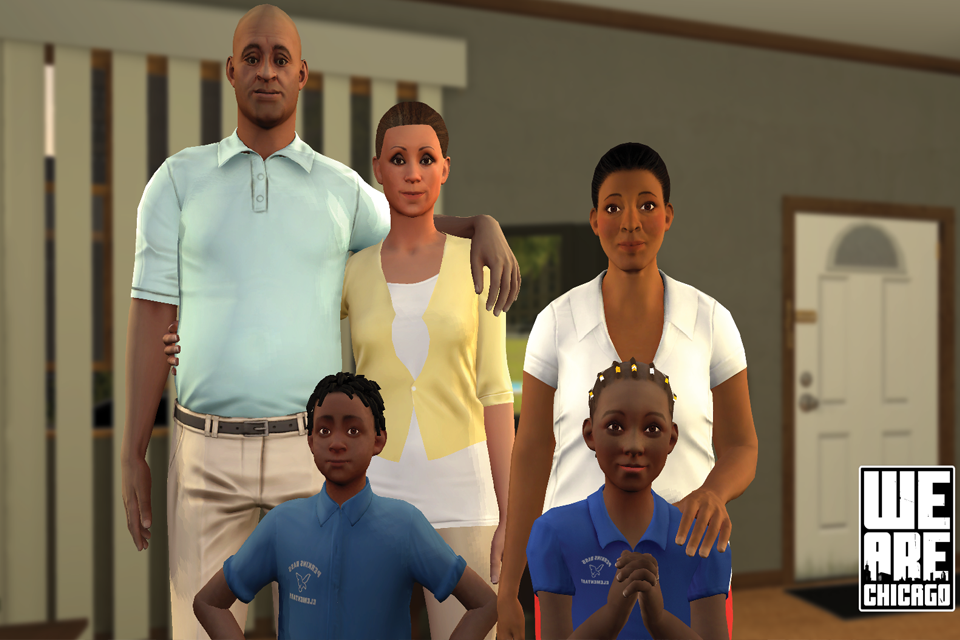
The emphasis isn’t on dexterity challenges via shoot-me-ups or platform jumping à la Super Mario, but through challenging misconceptions from the perspective of the character Aaron.
Choices are at the core of what Block refers to as a “documentary game,” making Thornton’s role, and dialog in general, a key factor. We Are Chicago’s presentation lends itself to that of an interactive drama, similar to titles like The Walking Dead and The Wolf Among Us from the recently successful Telltale Games. The emphasis isn’t on dexterity challenges via shoot-me-ups or platform jumping à la Super Mario, but through challenging misconceptions from the perspective of the character Aaron.
Thornton, from the beginning, wanted to highlight a protagonist that resembled the Talented 10th – a phrase used by the historian, author, editor and civil rights activist, W.E.B Dubois, to describe the leadership class of African Americans.
“He’s going to go to college, he’s intelligent, his father has passed, but his father still left him with a foundation in which to stand,” explains Thornton.
You Are Chicago
Balance was an important standard to be held up between Block and Thornton. The scale that holds Englewood’s harsh realities with all its goodness is a viewpoint some don’t always get to see, especially through a character that defies stereotypes. Through Aaron’s eyes, players get to experience the familiar, but uniquely Chicagoan, banter that goes on between friends, the pressures of being the man of his house, the love the main protagonist has for common hobbies like poetry, and the successes he finds in-between all the surrounding negatives.
“We had the characters express their frustrations, but also express this sense of accomplishment and sense of achievement through their poetry,” says Block. “Through that there are these positive emotional experiences that you can still get. That sense of achievement, familial connection and friends are all shared experiences that we all have that help you empathize with the characters, even if you don’t necessarily have that day-to-day experience. It’s that commonality that we all share.”
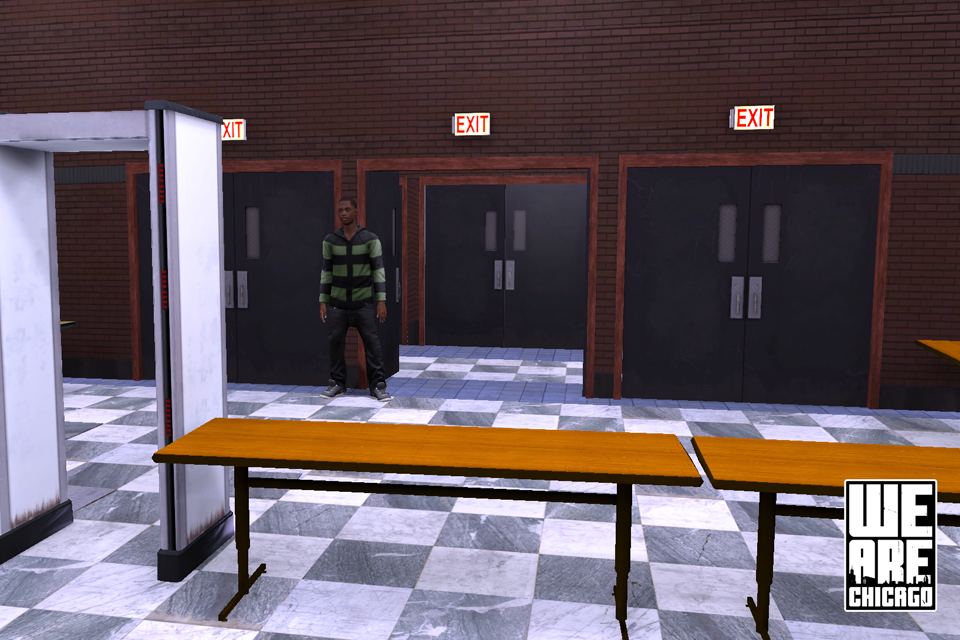
“We need games that represent a diverse people because it makes the industry better, it makes all of us better.” – Michael Block
We Are Chicago’s development is reaching its final strides, with an aim for a spring 2016 release. Block and his team not only intend to spread empathy globally through the title, but also aim to assist on a grassroots level, offering a portion of the game’s proceeds to select non-profits based in Chicago. Many of these same organizations will also be featured within the game.
While proponents to progressivism in games and critics may question the decision to create a niche project of this nature from a ‘demand’ and ‘financial gain’ perspective, Block scoffs at the idea.
“There are tons of people who want positive representation of themselves in games. If you give that to people, they’ll be excited,” says Block. “It’s not like you are committing business suicide by marketing games to a ‘different’ demographic. In fact, it could be a very good thing. We need games that represent a diverse people because it makes the industry better, it makes all of us better. And so I think that this is part of that expression of ‘we are better off as a society, and as an industry, and as a people.’”
Thornton largely echoes this sentiment.
“We do live in a cauldron. Englewood is a rough neighbourhood. The overall response to this game should be, ‘but for the grace of God go I,’ my White, Black brotha [sic], if indeed you lived in the same set of circumstances, how would you react?”

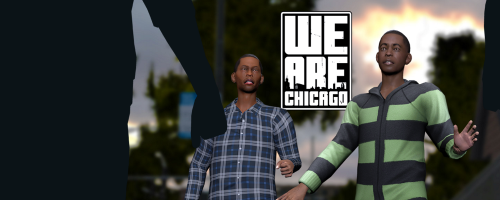


Comments are closed.